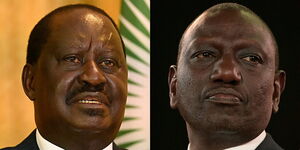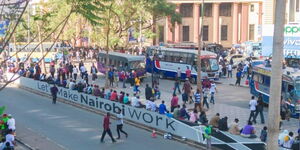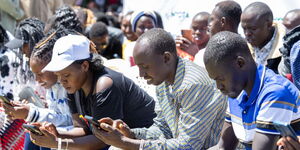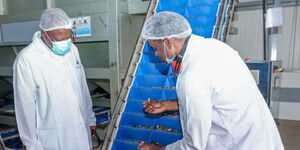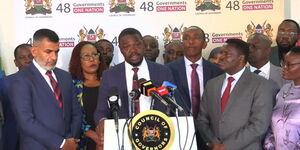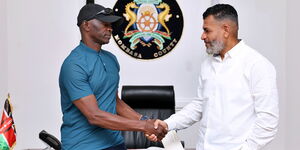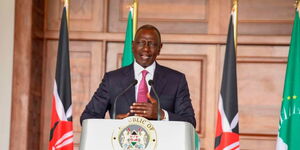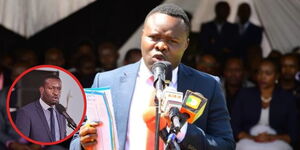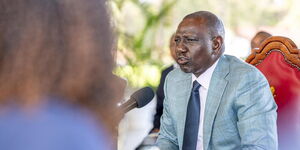Kibra constituents and Kenyans, in general, were, on Friday, in mourning following the demise of MP Ken Okoth after a battle with stage four colorectal cancer.
Kenyans had supported the MP throughout the six months he was seeking treatment in France until his return, in early July, including government officials and State House.
Committed to fighting for the poor
Okoth was praised by leaders and citizens alike for his tough stance against laws he thought oppressed the poor and even took anecdotes from his own life to aid him in making the decisions.
In 2013, the leader was openly opposed to the then-controversial VAT Bill that had only zero-rated 700 products.
His eyesight was destroyed by a small paraffin lamp
“My spectacles are not objects of prestige, but emblems of paucity. I would not be wearing them had I grown up in an opulent background. My conscience could not allow me to subject the poor to more hardship via my vote.
“Nyangile (a small paraffin lamp) damaged my eyesight. I would be out of my mind to do anything that would make life harder for people like my mum who sold anything from clothes to paraffin and tomatoes in Kibra to bring up six children," he told Daily Nation at the time.
Looked up to Raila
The celebrated MP, in the past, also revealed that he looked up to former Prime Minister, Raila Odinga, who he said was his personal hero.
“I first set my eyes on my hero, Raila at Olympic when he visited and addressed us, the pupils. He told us nothing was impossible and gave the example of himself. He had just emerged from years in detention and won the Langata parliamentary seat without the assistance of his famous father.
"The inspiration kindled a fire in me that burns to this day. When I decided to vie for the Kibra parliamentary seat, I drew confidence from the realization that it was tough, but not impossible," he continued.
So determined was the leader that he worked hard enough and ended up serving as the Member of the National Assembly for Kibra, a section that was cut from Lang'ata Constituency which was headed by Raila.
Born in ghetto
The 41-year-old was born in 1978 at Kibra’s Kisumu Dogo and was the fourth born of six children.
Growing up, his childhood was rough since they lived in a 10 by 10 hovel, that was later flattened while his father abandoned the family early in his life.
"As children, we precariously played on the railway line. That was until one day in 1981 when bulldozers came trundling and without any warning, flattened down the hovels, ours included. We were in the cold for a while before we moved to a two-roomed shack. We shared a toilet with five other families. Water was drawn from a communal tap outside," he narrated.
His life, however, truly turned around when he was called to Starehe Boys’ Centre after acing in his KCPE with 613 out of 700 marks.
“Figure what would have happened to me if the scholarship did not come along. I would probably have gone into bhang in those formative teenage years. Or I would have joined criminal gangs in the slum. I would probably be dead by now.
“Prior to secondary school, I had not known a three-meal diet. Eating from the trash bins was just normal. I seldom went back home, choosing instead to remain at school studying and working," disclosed the leader.
He was, however, not lucky to join the University of Nairobi to study law that he had qualified for and so he sought for alternative sources of income.
He was a newspaper vendor and a watchman
He returned to Nation Media Group where he had done voluntary work before and luckily, he was allowed to sell their newspapers. Around that time, he doubled up as a watchman at Maendeleo ya Wanawake House premises for supplementary earnings.
Life was so tough that at times, he used to walk from the city to Kibra because of lack of fare.
When his life got traction, the MP put his focus on education explaining that from his experiences, he understood education was the key to unshackling himself from poverty.
Before joining Parliament, he ran an NGO that provided bursaries to needy students and continued with the practice even after becoming an MP.

